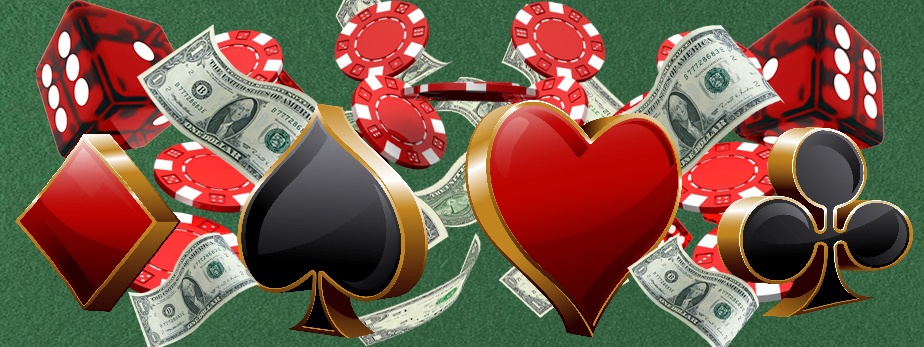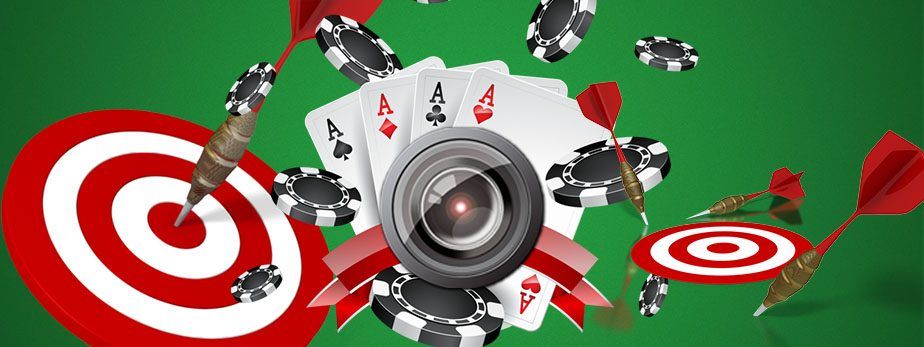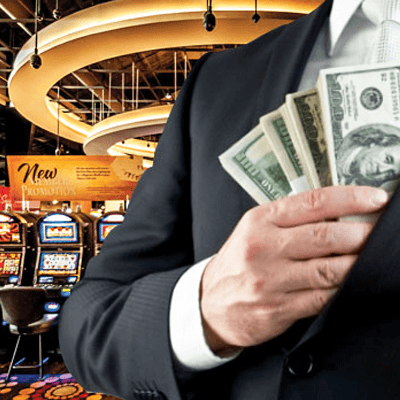Are Poker Tournaments Really Laundering Money?
There have been suggestions that some of our favourite poker tournaments are just a big cover-up for money laundering and are organised entirely by underworld criminals intent on hiding the proceeds of their activities.
There are always two sides to every 'sensational' story, so we decided to take a closer look and see if there is any potential for truth in these accusations, or whether they are just 'something someone somewhere' dreamed up.
A Bit of Background
It is nothing new for anti-gambling groups to hit out at poker as one of the significant causes of problem gambling. However, it is poker tournaments that are their latest target, declaring that televising them and 'glorifying' the players to almost celebrity status is leading to more gambling addiction.
These same groups have also drawn some rather far-fetched conclusions. They have most recently been waging war on some of poker's biggest live tournaments, declaring that they are nothing but a 'hotbed' of crime, run by mobsters for the purpose of money laundering.
Realistically speaking, what are the possibilities for money laundering through poker tournaments?
Some Facts
It is perhaps not common knowledge, but many of the top players in tournament events like the WSOP and the Vegas Main Event are not always playing with their own money. Funding for entry fees and in-play expenses can come from other players, syndicates or sponsors and players are not required to declare its source.
Estimates of this 'poker economy' vary from $30 million to $1 billion per year (depending on where you get your info) and that is just taking account of the major tournaments.
Potentially, this is the most prominent fact that has led to a renewed interest in the subject of money laundering. It has certainly not helped the cause when several prosecutions earlier this year (relating to a case dating back to 2011) declared that three top poker sites were guilty of various charges, a part of which did include money laundering, amongst others.
Conspiracy Theorists?
There is little doubt that there are some people out there who have nothing better to do with their time than to make up fake news or to promote their own weird and wonderful conspiracy ideas.
Perhaps there is an element which sparks their contriving, but mostly it is an attention-seeking ploy. However, it does not help the cause when the media jump on board.
Cheats in The Game
Wherever there is a sport, there is an element of competitiveness, and wherever there is competition, there are also cheats. Plenty of online information is only too happy to display bad news, but in reality, it is only a tiny minority of competitors who resort to unscrupulous tactics.
Cheating at poker is decried by 99% of players, who make a point of identifying and shunning the culprits – a little like a rugby crowd, who will deal with and eject troublemakers themselves, without resorting to the law. Undoubtedly there is an element of illegal gambling out there, but nothing we could find relates directly to any legitimate poker tournaments.
Poker Online
As anyone who plays poker online will already know, there are relatively stringent checks carried out by adequately licensed gambling sites to establish your age, identity, address and financial status.
Regrettably, some sites remain unlicensed and as such may not be quite so scrupulous in their ways. Although it is theoretically possible for minor amounts of money to be 'laundered' through them, it would be a time-consuming task to process any more than a few hundred pounds at a time quite frankly.
Alternative Paths
You will find interviews online that involve poker heroes from a previous generation, who claim they 'cannot keep up' with the latest batch of poker whizz kids who have learned their skills online. For them, travelling the world and playing poker in some 'hazardous' locations at private tournaments has become a way of life.
Some of these players claim that some of the best (and most lucrative) games have been those involving underworld characters, but are also adamant that it is a lifestyle choice and does not indicate that their participation is primarily intended to encourage money laundering activities, or indeed, that they are involved in them.
Alexander Stevic is one such example and just last year during an interview carried out by a popular poker website he stated:
Honestly, the best games are the ones with the mafia. Not with 20-something gangsters who only have €20,000, because that's scary.
What we Conclude
None of us likes to believe that there is any significant money laundering going on via the poker tournaments we all love and enjoy watching on TV. There is perhaps potential opportunity, but that is not to say that the majority of our top players either condone or are actively involved in such things.
Our advice for all poker players who play online is to always sign up with sites that are well-licensed and therefore legitimate. If you enter tournaments and are offered your entry or stake money, always ensure that you are fully aware of the source of that cash.
Some professional poker players elect to mentor promising players and to help them financially. Other 'sponsors' are not quite so legit, so if you did not perform as expected, unpleasant events could occur. We will say no more on that point!
Poker tournaments will continue, and fanatics will always have something to be fanatical about. If you enjoy poker, then watch and play, but as with everything in this day and age, you just need to use common sense.

Tracy started writing for us in early 2017 and is a crucial player within our team. She’s the editor of our Blog and regularly writes other articles. Tracy’s online gambling insights are born out of years of real-world experience as a Croupier overseeing table games.

 Blog Home
Blog Home
 Privacy Policy
Privacy Policy
 About Us
About Us








